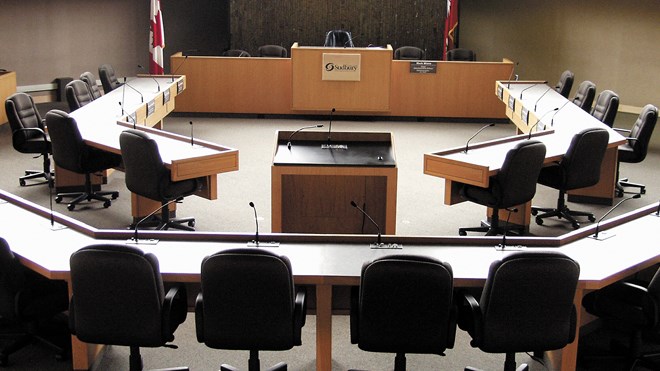With so many big projects in the works, and with upper levels of government flush with infrastructure money, Greater Sudbury city council will get an overview Tuesday on debt financing.
In a move that would spell the end of the decades old pay-as-you-go policy, city councillors are considering ways to fund some of the projects to take advantage of the infrastructure funds and historically low interest rates.
One approach would be to redirect current debt payments to new debt once the old debts are paid off.
“At the March 7, 2017 council meeting, an additional request was made; that being proposing alternative sources of funding the debt repayment while minimizing or eliminating the need for a tax increase,” says a staff report on the issue.
“One such avenue deals with retired debt; where the debt repayments would be used for new debt issues. Currently, in accordance with policy, debt payments from retired debt are converted to a contribution to capital.”
Under a policy established in 2013, any debt financing strategy should match the city’s long term plans.
“The policy also states that the debt should be affordable and sustainable and should be structured in an equitable manner to have those that benefit from the asset pay for the debt,” the report says.
Under the policy, debt financing should only be considered for:
- New, non-reoccurring infrastructure requirements
- Programs and facilities that are self supporting
- Projects where the cost of deferring expenditures exceeds debt servicing costs
- Securing debt for terms no longer than the anticipated life of the funded asset.
The policy also includes two categories of debt – one repaid by everyone through property taxes, the other repaid through user fees or development charges.
Those projects include water/sewer projects, parking lot improvements, and growth-related projects where other revenues would provide for debt servicing costs.
Under provincial guidelines, the city can only borrow up to 25 per cent of its annual net revenue, which amounts to $97 million out of annual revenues of $388 million. But the city's own policy restricts borrowing to five per cent of net revenue, or $19 million.
“This policy may be revisited to modify this ceiling if more debt is desired,” the report says.
Sudbury is in a strong position when it comes to debt, the report said. And the interest rate for a 20-year debt is between 3.3 and 3.5 per cent.
“As a result of the current low interest rate environment in Canada, it would be prudent to fund large capital projects with external debt,” the report concludes.
“The city should be prepared to identify shovel ready projects to the federal government and consider appropriate funding sources.”
Read the full report here.
